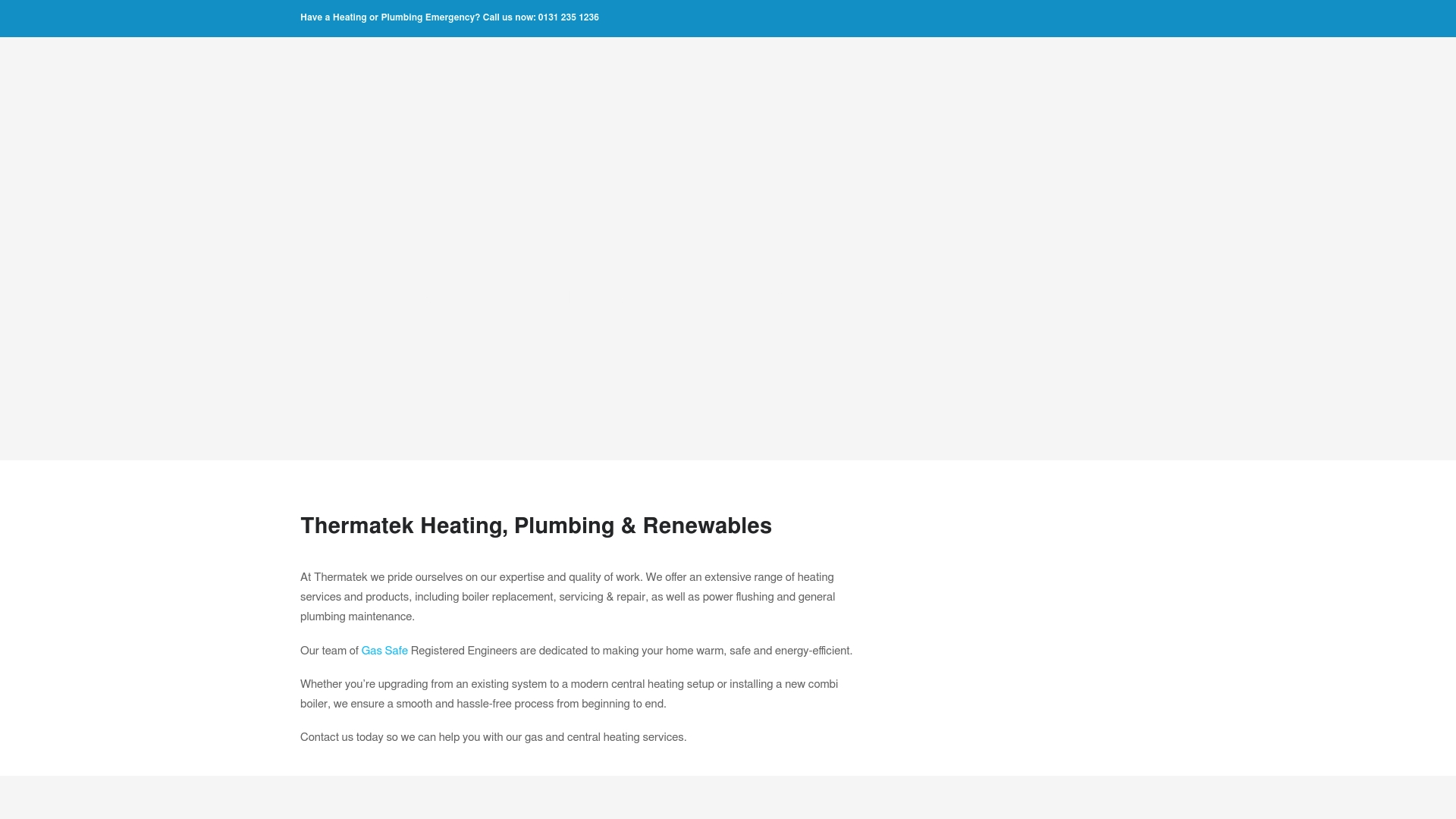Understanding Energy Efficient Heating for Your Home
Energy efficient heating sounds simple on the surface. Everyone wants a warm home without sky-high bills, and the promise is hard to ignore. But here’s a surprise. Heating accounts for nearly 14 percent of all UK carbon emissions and slashing energy use can cut household bills by up to 40 percent. Most people think the main benefit is saving money, but the bigger impact is how much it protects the environment. That changes everything.
Table of Contents
- What Is Energy Efficient Heating?
- Why Energy Efficient Heating Matters
- How Energy Efficient Heating Works
- Key Concepts Of Energy Efficient Heating
Quick Summary
| Takeaway | Explanation |
|---|---|
| Energy efficient heating reduces bills by up to 40%. | Efficient heating technologies can significantly lower household energy expenses, providing immediate financial relief. |
| Advanced systems improve thermal comfort and reduce waste. | Technologies like heat pumps and smart controls optimise heat generation and distribution, ensuring minimal energy waste and maximum comfort. |
| Implementation supports environmental sustainability. | Using energy efficient heating reduces carbon emissions and reliance on non-renewable resources, benefiting the environment and contributing to climate goals. |
| Home value may increase with energy-efficient systems. | Properties equipped with high-efficiency heating can fetch higher market valuations, making them attractive investments for homeowners. |
| Government incentives can enhance economic benefits. | Many governments offer financial incentives for energy-efficient upgrades, making adoption more appealing from a financial standpoint. |
What is Energy Efficient Heating?
Energy efficient heating represents a strategic approach to warming homes while minimising energy consumption and reducing environmental impact. It focuses on technologies and methods that provide maximum thermal comfort using minimal energy resources. Learn more about our renewable heating solutions.
Understanding the Core Principles
At its fundamental level, energy efficient heating involves intelligent systems that generate, distribute, and maintain heat with superior performance compared to traditional heating methods. According to Energy Saving Trust, efficient heating can reduce household energy bills by up to 40% while significantly lowering carbon emissions.
The primary objectives of energy efficient heating include:
- Minimising heat loss through superior insulation
- Utilising advanced heating technologies
- Optimising temperature control and distribution
- Reducing overall energy consumption
Technology and Mechanisms
Modern energy efficient heating relies on sophisticated technologies like heat pumps, condensing boilers, and smart thermostatic controls. These systems work by capturing, transferring, and maintaining heat with unprecedented precision. They employ advanced sensors, variable speed components, and intelligent programming to adapt heating output based on real-time environmental conditions and household requirements.
By integrating renewable energy sources and high-efficiency equipment, homeowners can achieve substantial energy savings while maintaining consistent indoor comfort levels.
To clarify the various technologies implemented in energy efficient heating systems, the following table contrasts their main features and advantages as mentioned in the article.
| Technology | Key Features | Advantages |
|---|---|---|
| Heat Pumps | Capture and transfer ambient heat | Highly efficient, lower emissions |
| Condensing Boilers | Recover heat from exhaust gases | Improved efficiency, lower costs |
| Smart Thermostatic Controls | Use sensors and intelligent programming | Precision control, reduced waste |
| Renewable Energy Integration | Utilises sources like solar power | Minimises reliance on fossil fuels |
| The goal is not merely to generate heat, but to do so with minimal waste and maximum effectiveness. |
Why Energy Efficient Heating Matters
Energy efficient heating transcends mere technological innovation it represents a critical strategy for environmental sustainability, economic savings, and improved quality of life. Explore our solar thermal solutions to understand how renewable technologies contribute to this important mission.
Environmental Impact
The significance of energy efficient heating becomes starkly apparent when examining its environmental consequences. According to UK Government Climate Change Report, residential heating contributes approximately 14% of total UK carbon emissions. By adopting energy efficient heating technologies, homeowners can dramatically reduce their carbon footprint and contribute meaningfully to national and global climate objectives.
Key environmental benefits include:
- Reduced greenhouse gas emissions
- Lower consumption of non renewable energy resources
- Minimised ecological disruption from traditional energy production
- Support for sustainable infrastructure development
Economic Considerations
Beyond environmental advantages, energy efficient heating offers substantial economic benefits for households and businesses. Investing in high performance heating systems represents a strategic financial decision that generates long term savings. Modern energy efficient technologies can reduce heating expenses by up to 40%, providing significant relief for household budgets.
The economic rationale extends beyond immediate cost savings.
The table below summarises key environmental and economic impacts of adopting energy efficient heating, helping to distinguish why both aspects are critical for households.
| Impact Area | Main Benefits |
|---|---|
| Environmental | Reduced greenhouse emissions, supports sustainability |
| Economic | Up to 40% reduction in energy bills, higher home value |
| Resource Consumption | Lower use of non-renewable energy resources |
| Government Incentive | Eligibility for financial support and tax rebates |
| Homes with superior energy efficiency typically command higher market valuations, presenting an attractive proposition for property owners looking to enhance their real estate investments. |
 Moreover, many governments offer financial incentives and tax rebates for implementing energy efficient heating solutions, further improving the financial attractiveness of such upgrades.
Moreover, many governments offer financial incentives and tax rebates for implementing energy efficient heating solutions, further improving the financial attractiveness of such upgrades.
How Energy Efficient Heating Works
Energy efficient heating operates through sophisticated mechanisms that prioritise intelligent energy management and precise thermal control. Stay updated with our latest heating technologies to understand cutting edge developments in this dynamic field.
Heat Generation and Transfer
The core principle of energy efficient heating revolves around minimising energy waste during heat production and distribution. According to International Energy Agency, modern heating systems achieve efficiency through advanced technologies that capture, convert, and distribute heat with unprecedented precision.
Key mechanisms of heat generation include:
- Capturing ambient heat from external sources
- Converting energy with minimal thermal loss
- Utilising renewable energy inputs
- Implementing intelligent temperature regulation
Smart Control and Monitoring
Modern energy efficient heating systems leverage intelligent controls and sensor technologies to optimise performance. These systems continuously analyse environmental conditions, occupancy patterns, and thermal requirements to adjust heating output dynamically.
Advanced thermostatic controls can learn household temperature preferences, automatically modulating energy consumption to maintain optimal comfort while minimising unnecessary heating.
Technological innovations like zoned heating, predictive programming, and remote monitoring enable homeowners to achieve granular control over their heating infrastructure. By integrating sophisticated sensors and machine learning algorithms, these systems can predict and respond to heating needs with remarkable accuracy, ensuring consistent comfort while dramatically reducing energy consumption.
Key Concepts of Energy Efficient Heating
Understanding the fundamental principles underlying energy efficient heating requires a comprehensive exploration of interconnected technological and environmental strategies. Learn more about our renewable energy approaches and how they transform residential heating solutions.
Thermal Performance and Insulation
Thermal performance represents the cornerstone of energy efficient heating, focusing on minimising heat loss and maximising energy utilisation. According to Building Research Establishment, effective insulation can reduce heat loss by up to 60%, dramatically improving overall heating system efficiency.
Critical aspects of thermal performance include:

- Comprehensive building envelope protection
- Advanced insulation materials and techniques
- Minimising thermal bridges and heat transmission points
- Strategic architectural design for heat retention
Energy Conversion and Efficiency Metrics
Energy efficient heating systems are evaluated through sophisticated performance metrics that measure their capacity to convert input energy into usable heat. The primary metric, Coefficient of Performance (COP), represents the ratio of heat output to energy input, with higher values indicating superior system efficiency.
Modern heating technologies aim to achieve progressively higher efficiency ratings by implementing innovative strategies such as heat pump technologies, condensing boiler systems, and renewable energy integration. These approaches transform traditional heating paradigms, shifting from simple heat generation to intelligent, adaptive thermal management that responds dynamically to changing environmental and occupancy conditions.
The following table defines key terms frequently used in the context of energy efficient heating, making it easier to understand the core concepts addressed in the article.
| Term | Definition |
|---|---|
| Coefficient of Performance (COP) | Measure of energy efficiency: heat output divided by energy input |
| Thermal Performance | Ability of a building to retain heat and minimise loss |
| Insulation | Materials and methods used to reduce heat escape from buildings |
| Zoned Heating | Dividing property into separate heating zones with individual control |
| Smart Controls | Automated systems that regulate heating based on occupancy and demand |
Ready to Experience Real Energy Efficient Heating in Your Home?
Have you had enough of wasted energy and rising bills caused by older, inefficient heating systems? The article above explains the core ideas behind energy efficient heating, from smart controls and heat pumps to better insulation and reduced environmental impact. If you want to enjoy tangible savings, enhanced comfort, and peace of mind knowing your home is using energy responsibly, now is the perfect time to act. See how the trusted experts at Thermatek Heating can deliver reliable solutions built around your needs.

Take the next step with a free quote or speak to our Gas Safe Registered engineers for tailored advice. Whether you need a boiler replacement, smart thermostat, or a full renewable energy upgrade, we offer proven installations and ongoing support that give you control over your comfort and costs. Visit our main site now to transform your household heating and join others in Edinburgh and Midlothian switching to efficient, future-proof systems.
Frequently Asked Questions
What is energy efficient heating?
Energy efficient heating involves methods and technologies that provide effective warmth while minimising energy consumption and reducing environmental impact.
How does energy efficient heating save on energy bills?
Energy efficient heating can reduce household energy bills by up to 40% by optimising energy use through advanced technologies and improved insulation.
What technologies are used in energy efficient heating systems?
Modern systems include heat pumps, condensing boilers, and smart thermostatic controls that optimise heating output and minimise energy waste through advanced sensors and programming.
Why is insulation important for energy efficient heating?
Effective insulation minimises heat loss, which is crucial for improving overall heating system efficiency and maintaining consistent indoor temperatures.

